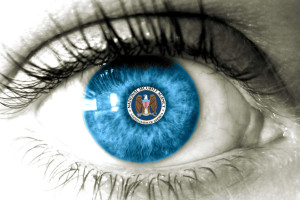By: Annette Brinckerhoff
This Thursday, the Federal Court of Appeals passed a verdict concerning the NSA’s collection and storing of civilians telephone metadata. The court ruled in American Civil Liberties Union v. Clapper, that the ACLU did have a claim and that the NSA’s collection of metadata was unlawful under federal law. The court decided that the issue at hand was not one of constitutionality, but whether the metadata collection program breached the intent of Section 215 of the Patriot Act. This section addressed the collection of metadata and specified it’s narrow scope. Section 215, compelled individual warrants for the collection of data and required the disseminating of data after a short time. Because of this, the court found the actions of the NSA to be unlawful because they went beyond Section 215s intent.
The court did not pass an order to terminate the collection of metadata by the NSA. This was because it deemed it unnecessary, since congress will shortly answer that question. The Patriot Act, which was passed shortly after the 9/11 attacks as a counterterrorism strategy, is due to expire on June 1st, 2015. This opens the question for whether congress will renew a revised version of the bill, as it has in the past, or pass the Freedom Act. An alternative to the Patriot Act, which will focus on protecting individuals freedoms. This ruling appealed an earlier decision by the Southern District of New York District Court, where judge Pauley ruled the collection program lawful, and the Patriot Act beyond judicial review outside the FISCA courts.
The court recognized the importance of metadata as a source of information that reveals personal information. It also recognized the programs overarching scope of collection of data and its three hop system as being overly broad. The overarching spectrum of the program as well as the long term retainment of the information was found to conflict with the specifications given in section 215.
The implications of the ruling pass judgement on the activities conducted by the NSA during a critical moment in the debate. As congress works to decide on the next step of legislation concerning counterterrorism and our civil liberties, the decision will have weight on the legality of these invasions of privacy. This ruling also serves as precedent when the constitutionality of bulk collection is questioned after congress passes legislation in the wake of June 1st.
The role of the court system is to determine whether the action taken by the NSA is in accordance with our laws. If not, it must be clear and present danger. The magnitude of this decision is important to note as it relates to the freedoms and liberties of every American by the constitution. As congress struggles to address how to respond to transnational terrorism, a new and complex threat, the judicial system must take on a strong role in the checks and balances on government.

